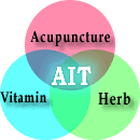Hepatitis
B
Hepatitis
B Virus General Information
Genome: partial dsDNA
Family: Hepadnaviridae
Related Viruses: Duck Hepatitis B Virus, Ground Squirrel Hepatitis
Virus, Snow Goose Hepatitis B Virus, Woodchuck Hepatitis Virus,
Wooley Monkey Hepatitis Virus
Satellite Virus: Hepatitis D Virus (Delta Virus)
Incubation Period: 30 - 180 days
Transmission: Blood and Sexual Contact
Acute Attack: Mild or Severe
Serum Diagnosis: anti-HBc, anti-HBs or HBsAg, HBeAg, Anti-HBe
Treatment: Symptomatic
Prevention: Vaccination with recombinant hepatitis B surface antigens,
Hepatitis B Immunoglobulin Post-exposure prophylaxis
TREATMENT FOR ACUTE INFECTION
At present, there are no specific treatments for benign acute viral
hepatitis. Current therapy should be directed to support and maintain
the patient's comfort. As with most forms of hepatitis, alcohol
consumption should be minimized or, better yet, eliminated altogether.
This gives the chance for the liver to recover.
Use of adrenocorticosteroids, recommended by some, appears to have
no effect for curing the underlying disease. Furthermore, it appears
that use of steroids in early treatment of the hepatitis B virus
(HBV) infection may result in the development of a persistent infection.
Therapeutic effectiveness of Interferon on the prognosis and course
of acute HBV infection remains unknown.
ALTERNATIVE TREATMENTS:
Since there is no cure, many individuals have sought other sources
of therapy for their damaged liver. Many swear by these alternative
treatments, but they should be taken with caution. Though these
alternative treatments come from natural sources, harmful side effects
may also follow. Most alternative treatments do not target the virus,
rather they typically boost the liver's health. The alternatives
include:
Dandelion Root
Liquorice Root
Milk Thistle (Silymarin)
Selenium
Vitamin E
A Healthy Diet - Eat a well-balanced and nutritious diet (i.e. food
from each of the food groups).
Eating a well-balanced and healthy diet will minimize any excess
damage done to an infected liver and may even expedite liver recovery.
Always remember that virtually everything we eat must pass through
the liver.
Cut down on the intake of deep-fried and fatty foods.
Minimize or abstain from alcohol consumption. The liver detoxifies
Alcohol, therefore excessive alcohol consumption results in additional
liver damage.
Minimize your consumption of smoked, cured, and salted foods. Try
using alternative seasonings when cooking (e.g. lemon juice, onion,
vinegar, garlic, pepper, cloves, etc.).
MEAT, FISH, POULTRY & ALTERNATIVES TO MEAT can provide protein,
Vitamin A, iron, Vitamin B12, niacin, fiber, and thiamin. However,
many physicians believe that consumption of meat and seafood should
be reduced, since digesting/processing these forms of food can further
tax the liver.
BREAD & CEREALS provide carbohydrates, niacin, thiamin, riboflavin,
and fiber.
FRUITS & VEGETABLES provide vitamin A, vitamin C, fiber, and
folacin.
MILK & MILK PRODUCTS provide calcium, riboflavin, niacin, folacin,
Vitamin A, and Vitamin B12.
Increased intake of high-fiber foods (i.e. fresh fruits and vegetables,
whole grain breads, rice, and cereals) is especially helpful in
keeping one healthy.
Avoid uncooked food since it may carry harmful bacteria.
NOTE: The above suggestions should be used as a guideline when eating,
but should not be taken as the "be-all-and-end-all"
LIVER TRANSPLANTS
Liver transplants are sometimes required for extensive liver damage
due to viral (or non-viral) causes. However, there are many factors
to consider before getting a liver transplant. First and foremost,
transplantation is a complex operation that requires a suitable
donor. Also, there is usually a long waiting list for those wishing
to receive a transplant. Moreover, transplanting a liver into an
individual who has chronic hepatitis B presents the likelihood that
the newly transplanted liver may become re-infected. Transplant
operations tend to be relatively expensive procedures. Not all hospitals
may be able to perform such an operation.
Despite these problems, for some individuals, liver transplants
may offer the only hope for a healthy life. To improve the transplant
situation, some researchers are considering using animal organs
as possible donors. Others are trying to grow a new liver from other
cells found in one's own body, so that an infected individual may
one day be able to give a small tissue sample and perfect liver
cells can be grown from a person's own cells and used for a transplant.
However, this technology is still in its infancy.
A NEW OPTION: ACUPOINT INJECTION THERAPY (AIT):
Acupoint injection is a therapy that combines Chinese herbs and
vitamins with traditional Chinese acupuncture . We select certain
Chinese herbs and suitable dosages of vitamin B1, B12, B6, or even
vitamin C, to inject into certain acupuncture points.
BENEFITS:
1. Protects the liver from further damage by the B virus .
2. Detoxifies the liver
3. Promotes nutrition and oxygen to the liver, which is very important
for tissue recovery and improves liver function.
4. Strengthens the immune system's ability to defend against and
kill the B virus and reduces inflammation.
5. Improves the patient's general condition.
6. Solves multiple disorders at the same time without involving
chemical drugs.
7. Protects the liver from previous drug damage.
8. This therapy has potential applications for both the prevention
and treatment of chronic Hepatitis, cirrhosis and their complications.
AIT is safe, more effective, and has no side effects - a crucial
importance for chronic disease.
HERBS COMMONLY USED IN ACUPOINT INJECTION TO TREAT HEPATITIS B:
According to each patient's individual situation, suitable herbs
and vitamins are selected to perform a stimulating role at the acupoints;
1. Ban Lan Ge-Baphicacanthi radix-Radix isatidis --
Antiviral, antipyretic (reduces fever, clears heat), anti-infectant,
detoxifies the liver, eliminates heat and toxins in the blood.
2. Chai Hu-Bupleurum-Radix bupleui --
Antipyretic, anticirrhotic, liver detoxifier, anti-inflammatory,
hepatoprotector, effects liver, gallbladder, pericardium, removes
stagnancy of liver Qi.
3. Yu Xin Cao-Herba Houttuyniae --
Clears heat, anti-infectant, detoxifier.
4. Dan Shen-Radix salviae miltiorrhizae --
Anti-fibrosis, eliminates blood heat, removes stagnancy, promotes
cell tissue and organ recovery.
5. Da Huang Teng--Caulis Fibraureae --
Anti-infectant, anticancer, increases white blood cell counts, strengthens
immune system, clears heat.
6. Huang Qin-Radix Scutellariae --
Anti-inflammatory, antiviral, anticancer; clears heat.
7. Dang Gui-Radix angelicae Sinensis --
Strengthens liver function, improves blood circulation, increases
red blood cell counts.
VITAMINS COMMONLY USED IN ACUPOINT INJECTION TO TREAT HEPATITIS
B:
Liver disease patients usually suffer from multiple vitamin deficiency,
especially of vitamins B and C.
Vitamin B1:
For the brain and nervous system, liver and spleen, gastrointestinal
system.
Vitamin B12:
For pernicious anemia, the immune system, the brain and nervous
system, gastrointestinal system, and heart disease. Necessary for
production of nucleic acids and makes up DNA - the genetic material
of cell-tissue recovery.
Vitamin B6:
Improves appetite, digestion and the immune system.
Vitamin C:
Involved in hundreds of vital biological processes in the body.
Helps support and protect blood vessels, bones, joints, organs and
muscle. Is necessary in sizeable quantities for healthy skin, tendons,
the cornea of the eye, ligaments, cartilage, teeth and bone. Boosts
the immune system. Involved in antibody production as well as the
white blood cell function and activity. Powerful antioxidant, which
plays a vital role in protecting against oxidative damage. Anti-cancer,
anti-aging, antiviral.
Case 1: Female, 40 years old, dentitst. I got had hepatitis B for
16 years. When I went to AIT, my blood test showed: HBeAg ( + )
- which means the B virus's replication rate is very high everyday
(SGPT 71 IU/L, SGOT 58 IU/L). After 2 months treatment, the test
showed HBeAg ( - ), SGPT 62, SGOT 43. I felt very happy that my
HBeAg for the first time became negative in so many years, at the
same time my liver function improved.
Case 2: Male, 43 years old, businessman. I had hepatitis B for 6
years. Firstly, the Doctor gave me an INTERFERON injection once
every 2 days for 52 times. I got very bad side effects - my hair
dropped out badly, fever everyday, body-weight loss over 10 Kg,
severe depression, and I was angry at others all the time. The worse
thing is that the doctor asked me to wear a mask all the time to
prevent me from catching cold, because my white blood cell count
became very low. Secondly, the doctor changed to let me take SAFIRIC
for 2 months everyday, but my blood test was getting worse after
that. I felt tired all the time, but it was difficult to sleep.
So I gave up. Finally, one of my friends recommended me to try Acupoint
Injection Therapy, so I decided to try. I only tried AIT treatment
for 10 times and stopped all my medications. Unbelievable! I felt
much better after 4 treatments. More energy, sleeping better, hair
dropping out much less, better digestion and my blood test SGPT
dropped from 93 to 70 after 10 treatments.
Case 3: Male, 33 years. In 1988 I felt tired and dizzy all the time.
My blood tests showed that I got hepatitis B. The Doctor gave me
an INTERFERON injection 3 times a week for almost one year. Nothing
was better, but I had a lot of side effects. So the doctor asked
me to quit the injections. I took another drug instead for two years.
Nothing improved with that either. Then I gave up for many years.
My HBeAg was ( + ) all the time for many years. My brother got liver
cirrhosis. At that time AIT helped him a lot, and he asked me to
try Acupoint Injection Therapy. I got AIT once a week, or once every
10 days for 2 years. For the first time, my HBeAg became negative.
 Hepatitis
C ,
Hepatitis
C ,  Hepatitis
,
Hepatitis
,
 Hepatitis
B
Hepatitis
B


